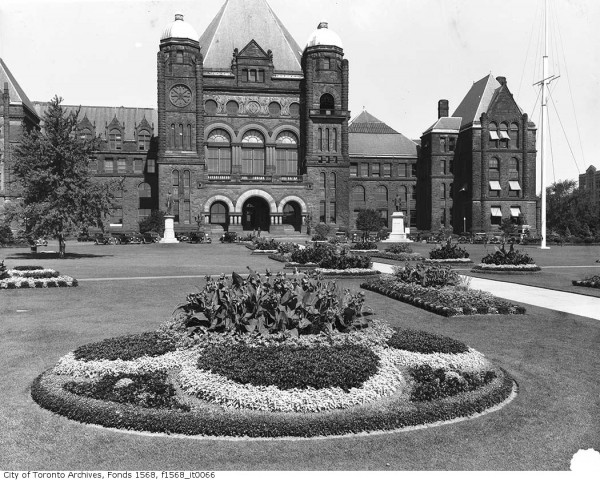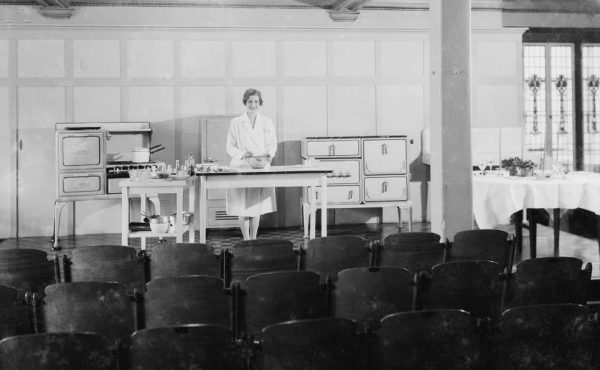Last night’s stunning win for Liberal premier Kathleen Wynne will almost certainly trigger not one but two leadership races — Tim Hudak will get the boot after seeing several Tory blue seats morph into Liberal red ones. And Andrea Horwath, the instigator of this whole exercise, managed to move from a position of great political influence to a position of no political influence.
But the other politician who’s got to be worried about the provincial outcome is Olivia Chow, currently the front-runner in the mayoral race. After a night that saw the NDP lose in her old (federal) riding of Trinity-Spadina, Chow must be wondering whether her former party’s tepid electoral showing in the 416 will cast a long shadow over her own ostensibly non-partisan run.
Yet there’s a much more specific problem that will confront Chow now that Wynne has a solid majority, and that is the viability of her centerpiece campaign plank — the pledge to reverse the $1 billion Scarborough subway decision and proceed instead with the originally planned LRT.
In Toronto, Wynne’s Liberals ran on a promise to build the Scarborough subway — it was in their spring budget, and then it was part of their campaign platform. With a majority in hand, the premier, I’m guessing, will be far less inclined to indulge Toronto council in yet another chaotic debate about transit priorities, especially after fending off an existential challenge from the NDP.
After all, she can — and will — say that voters backed her transit program, both at the macro level (the $29 billion transit trust fund) and at the micro level (the Scarborough subway decision, orchestrated last spring and summer). Regardless of the excessive cost and the poor planning it reflects, the decision is part of her government’s record, and voters in Toronto signed off on it, in significant numbers.
As with all minority governments that graduate into majorities, Wynne’s Liberals will become far more assertive in their decision-making in the months to come. Never mind that her own political career began, way back in the mid-1990s, with a fight to force Mike Harris’ Tories to respect local democracy.
Now, with the roles reversed, she’s got four years of clear sailing ahead of her. At least part of the Liberals’ success in the 905 has to do with their promise to confront gridlock, and Wynne’s going to want to be able to show progress in 2018. So she’s not going to squander another year re-litigating Scarborough, regardless of the merit. What’s more, I predict she’ll find many ways to telegraph this point to Toronto voters, probably through emissaries, long before the municipal vote.
The flip side of this analysis is that John Tory finds himself exceedingly well positioned to take advantage of Wynne’s victory, and not just because he’s got the most Liberals working in his war room. (He got a congratulations note out the door before any of his rivals.)
Tory began cozying up to the Liberals two weeks ago with the release of his surface-rail strategy, which strongly resembled Metrolinx’s own plan and carried the imprimatur of several influential Liberals. Tory would be a fool not to remind voters at every turn that if they elect Chow in October, she’ll be attempting to deliver a promise that runs directly counter to the Liberals’ mandate.
It’s possible that Chow could attempt a campaign course correction, and either try to fudge on her Scarborough subway promise (`we’ll review…’) or simply let it fall by the political wayside. But in so doing, she will lose a vital wedge that distinguishes her from Tory on arguably the most top-of-mind issue in the election.
Quite apart from the particulars of the candidates’ respective platforms, I’m guessing that many Toronto voters, between now and voting day in October, will find themselves asking which leader is likely to work most constructively with a newly emboldened Wynne.
It’s crystal clear that Rob Ford, who will make his sobriety victory lap later this month, is not that guy. But last night’s result may prompt Torontonians to ask themselves whether Chow can fulfill that role. More than anything else, Wynne’s majority means that voters, in Toronto and across Ontario, are weary of gridlock, in all its guises. It’s a message Toronto’s mayoralty candidates would do well to heed.
photo from Toronto Archives






7 comments
Some .02
Another way to look at it, is it’s the transition for Chow: she saw some issues with the execution and timing of NDP political planning, and has moved away from the party to return to a more neutral forum so as not to be pulled down with the possible shift of the tide to the Liberals.
With the NDP and Liberals failing (mostly NDP decision at this point) to come to any agreement on how to cooperate to win, voters are moving to the seemingly best choice to get their changes marked in…that means slight shift to Liberal in ON, and maybe a significant shift to Liberals at the federal level.
A change is needed given the sheer lunacy of recent events at the Federal level, but the manner in which the change was being sought makes me think it’ll happen via Liberal fortunes without help from the NDP. People will vote where it will count this time.
At the municipal level I think people are far more focused on the person who can get the job done and inspire people to get to to work. That’s up in the air, but the current crop of candidates is pretty good (save for the elephant in room in cottage country). Whoever wins will likely bring more stability, but if it’s status quo the person in charge is fully neutered at this point so the damage will be isolated.
The province’s own people (at Metrolinx) supported LRT over subway. City Council voted for LRT before it voted for the subway. If Chow won after her platform included LRT, the City’s environmental assessment concluded LRT was better, and City Council endorsed that…. I really don’t think the Province would refuse – not least because LRT is cheaper than the subway.
Huh? The province can’t go it alone on the Scarborough subway unless they decide to pick up the whole cost (and all the financial risk). Which wouldn’t be an optimal outcome, but it would be far better for Toronto than the current plan.
There isn’t a new master agreement in place yet, is there?
I don’t see why the Liberals wouldn’t allow themselves to be pushed back to the LRT plan. It’s far less absurd than what they accepted during the Ford years (and it would come from a much more stable municipal government). And going back to LRT gets new transit in Scarborough built sooner, not later.
With the Liberals elected on a commitment to electrify GO, what do we need John Tory for? Olivia Chow can make the case that her priorities are complementary to the province’s plans and should be the city’s focus.
It should be noted that all 3 parties pledged to keep the Scarborough subway, however I still believe Olivia Chow still can derail the subway if she focuses the potential cost overruns that are now on city taxpayers along with the additional operating costs offloaded on to the city.
You’re asking too much of #TOPoli voters, when you suggest they will imagine a discussion about the Scarborough subway & whether it aligns (or not) with the current municipal front runner’s platform. That’s too many layers. I think it comes down to getting the vote out, and ppl will pick who they like best, someone who will work with others (cause we’ve certainly had the reverse since 2010, someone who obstinately refuses to work with others) Over Tory, Chow has more experience in council…despite NDP losing TrinSpa, I still predict a Chow win for the mayoralty.
The Liberals were elected based on their record for the last 11 years. That means that Wynne can tear up any promise that she made during the campaign and still expect to get re-elected.
I wonder if this attitude of forgiving every single wrong-doing will extend to Ford as well.
The current agreement in place says LRT for Scarborough. If the contract is left alone, then that’s what we’ll get. The Premier can simply say, LRT is faster to build and cheaper so we are going to do that. Will people care in 4 years? The focus will be on the provinces financial situation and the provinces employment situation in the next election. The Liberal government will likely lose the next election regardless because of the economy so at least they can leave one parting gift of the cheaper most cost effective LRT vs a money sucking subway.